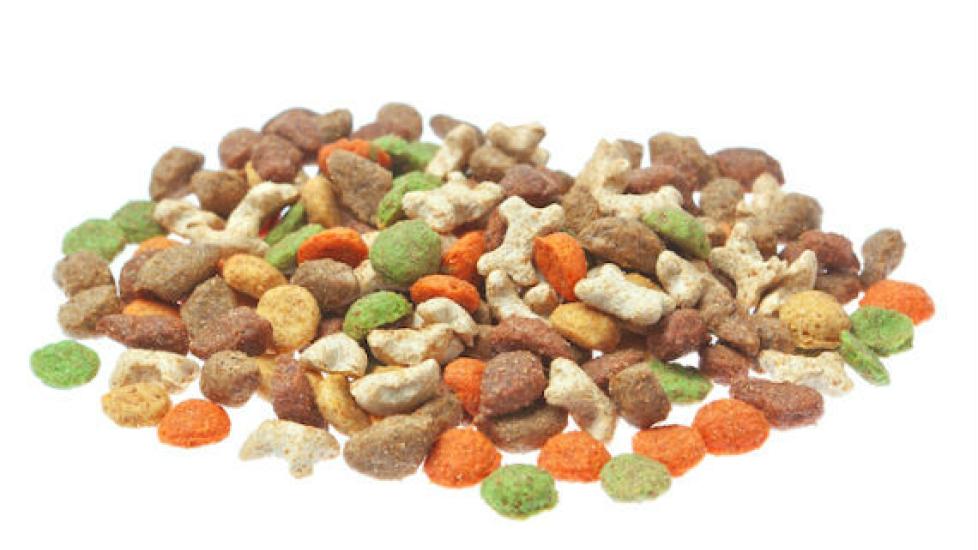Pet Food Recalls and Safety
There are many reasons that a pet food may be recalled. Some of the most common reasons include contamination with organisms like Salmonella and excesses or deficiencies of specific nutrients.
It is important to realize that recalls occur as a means of keeping our pets safe. In almost all cases, when a problem is found, reputable pet food manufacturers do everything they can to minimize the danger to our pets. This may include issuing a voluntary recall to remove the product from the retail market.
Still, many pet lovers wonder if there is anything that manufacturers can do to make pet foods safer, and that’s a legitimate question. Let’s take a look at some of the things that reputable pet food companies do to keep your pet’s food safe.
Sourcing of ingredients is an important consideration. Obtaining high quality ingredients from trusted sources is essential to maintaining food safety. Choosing to obtain ingredients from questionable sources, particularly those that have a history of quality control problems, introduces an unacceptable level of risk when other more trusted sources are available.
When commercial pet food is being manufactured, it becomes very important to physically separate the areas where raw foods are received and prepared from the areas where processing and packaging occurs on the “cooked” product. Known as the “kill step”, the cooking phase destroys Salmonella and other microbes in the food product. These two areas of the plant must be physically separated and employees must undergo sanitary measures such as hand washing, stepping through a foot bath, and donning covers for shoes before entering the processing and packaging areas. But even that is not enough. Airflow between these areas must also be separate to avoid the risk of recontamination with airborne microbes.
Reputable pet food manufacturers also conduct their own quality control testing throughout the manufacturing process and on finished products before these products leave the facility. These tests should examine accuracy, checking to be sure that nutrients and ingredients listed on the label are indeed present in the pet food at adequate levels. Testing for contamination should also be part of the quality control process. In addition, many companies store a sample of each lot for further testing in the event that unforeseen complications arise with the product.
What can the average pet owner do to ensure that their pet’s food is safe? Purchasing pet food manufactured by a company that you can trust is essential. Here are some tips on choosing a reputable pet food company.
- Recognize marketing claims for what they are, a means of selling pet food. Claims of “natural,” “organic,” “holistic,” or other terms do not ensure the safety of the product.
- Ask where the company sources their ingredients. The information may not be present on the product label, but any reputable pet food company should be able to tell you where they obtain their ingredients. This may require a phone call to the company, but it is well worth the time and effort. A toll-free number is usually printed somewhere on the food's packaging.
- Where is the food manufactured? Pet food companies that outsource this process to another company have less control over the procedure than those that manufacture their own food products. If the pet food label says “Manufactured for,” the food is manufactured by a third party and not directly by the company marketing the food. Look for a pet food company that manufactures its own products rather than outsourcing to a third party.
- Ask the company what type of quality control testing is performed. Does the company hold the food until the test results are obtained or do they start selling the food before test results are known? Ideally, the food is not offered for sale until results are obtained. A reputable company will perform numerous quality checks (often 200 or more individual tests) on their products before the food leaves their facility.
- Another important consideration is that of customer care. Call the customer care or customer service department and ask a question. This may be a good time to ask about sourcing and/or quality control procedures. If interactions with the company are negative under the best of circumstances when no problems exist, customer support may be lacking in the event of an unfortunate incident such as a recall.
Regardless of the reputation of the pet food manufacturer you choose to purchase from, recalls can still happen despite the best efforts of all involved. As a result, it is a good idea to stay current on recall news. You can find the latest news on recalls on petMD’s Alerts and Recalls page.
If you suspect your pet has become ill as a result of eating a particular pet food diet, consult your veterinarian. And if a particular pet food has made your pet sick, a report should be filed with the Food and Drug Administration (FDA).

Dr. Lorie Huston
Image: Sergio Stakhnyk / Shutterstock
Last reviewed on July 26, 2015.
